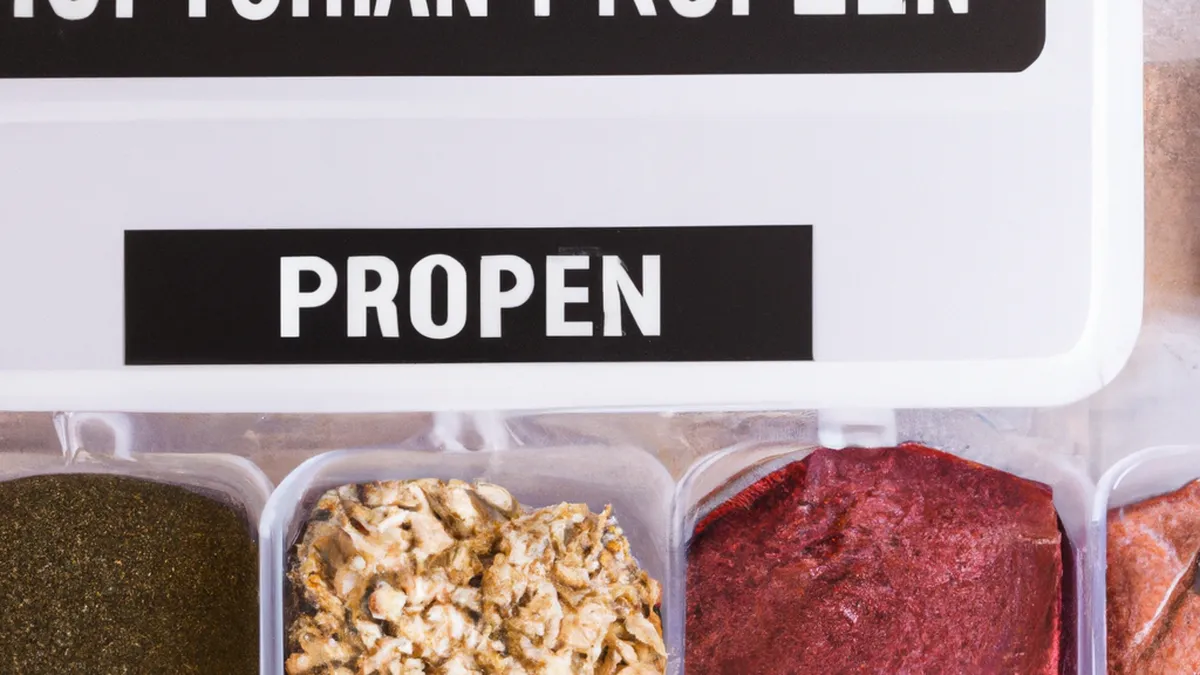Fuel Your Day with Protein-Packed Meals
High-Protein Meal Prep for Multivitamin Support
Meal prepping supports your health effectively. Focus on high-protein meals to enhance your multivitamin intake. Protein-rich foods provide essential nutrients and help you meet daily requirements. In this post, we’ll share tips for meal prep, advice on selecting protein sources, and the benefits of combining high-protein meals with multivitamins.
Why High-Protein Meals Matter
High-protein meals serve many purposes. They build and repair tissues, support immune function, and maintain muscle mass. Including these meals improves your nutrient intake and strengthens your health foundation.
High-protein foods often contain additional vitamins and minerals. Lean meats provide B vitamins, while legumes offer fiber and iron. Combining high-protein meals with a multivitamin creates powerful health benefits.
Meal Prep Tips for Success
1. Plan Your Meals
Start by creating a meal plan for the week. Choose high-protein recipes you enjoy. Include various protein sources like chicken, fish, beans, and tofu. This variety keeps meals interesting and nutritious.
Look for recipes with colorful vegetables. Bright produce often contains extra vitamins and minerals. Pairing vegetables with high-protein foods maximizes your nutrient intake.
2. Batch Cook Your Proteins
Batch cooking proves effective. Cook large portions of protein-rich foods on weekends. Grill several chicken breasts, bake salmon, or prepare a big batch of quinoa. Store these proteins in portioned containers for easy access.
Consider using a slow cooker or instant pot. These appliances yield delicious meals without constant attention. Set them up and let them do the work.
3. Invest in Quality Containers
Quality containers simplify meal prep. Choose glass or BPA-free plastic options with secure lids. Ensure containers withstand freezing and microwaving. This way, you can store meals longer without losing quality.
Label each container with the meal name and date. This practice helps you track freshness and consume meals timely. You’ll stay organized and avoid food waste.
Choosing the Right Protein Sources
Animal-Based Proteins
Animal-based proteins include chicken, turkey, fish, and eggs. They provide complete proteins with all essential amino acids. Fish, for example, offers omega-3 fatty acids that support heart health. Lean meats also supply iron and zinc.
Plant-Based Proteins
Plant-based proteins benefit your health too. Beans, lentils, and chickpeas contain high protein and fiber. These foods support digestion and keep you full longer. Nuts and seeds provide healthy fats and essential nutrients.
If you’re vegetarian or vegan, combine different plant proteins. Pairing rice and beans creates a complete protein. This combination ensures you receive all essential amino acids.
Supplements and Multivitamins
While high-protein meals provide nutrients, multivitamins can fill gaps. Choose a multivitamin that complements your diet. Look for one containing iron, vitamin B12, and vitamin D, especially for plant-based diets.
Consult your healthcare provider before starting any new supplement. They can help determine your needs and avoid potential medication interactions.
Benefits of High-Protein Meal Prep
High-protein meal prep offers many benefits. First, it saves time during busy weekdays. You won’t need to cook every day, making healthy eating easier.
Second, high-protein meals aid weight management. Protein takes longer to digest, keeping you full longer. This process reduces snacking and promotes portion control.
Additionally, meal prepping allows you to control ingredients. You can avoid preservatives and unhealthy additives found in processed foods. Preparing meals at home prioritizes fresh, whole ingredients.
Finally, combining high-protein meals with multivitamins enhances nutrient absorption. Protein helps your body utilize vitamins and minerals effectively. This synergy promotes optimal health and wellness.
Conclusion
High-protein meal prep supports your health powerfully. By planning meals, batch cooking, and choosing quality containers, you set yourself up for success. Incorporate various animal and plant-based protein sources to maximize nutrient intake. Consider multivitamins to fill gaps in your diet.
With these tips, enjoy delicious, nutritious meals while supporting your wellness. Start meal prepping today and experience the benefits!
Below are related products based on this post:
FAQ
Why are high-protein meals important for health?
High-protein meals are essential because they help build and repair tissues, support immune function, and maintain muscle mass. They also improve your overall nutrient intake and provide additional vitamins and minerals that contribute to a strong health foundation.
What are some tips for successful meal prepping?
To successfully meal prep, start by planning your meals for the week and choosing high-protein recipes you enjoy. Batch cook large portions of protein-rich foods and store them in quality containers for easy access. Additionally, label each container with the meal name and date to keep track of freshness.
How can I ensure I’m getting complete proteins on a plant-based diet?
To ensure you’re getting complete proteins on a plant-based diet, combine different plant protein sources. For example, pairing rice and beans creates a complete protein, ensuring you receive all essential amino acids. Include a variety of legumes, nuts, and seeds in your diet to maximize nutrient intake.















Post Comment